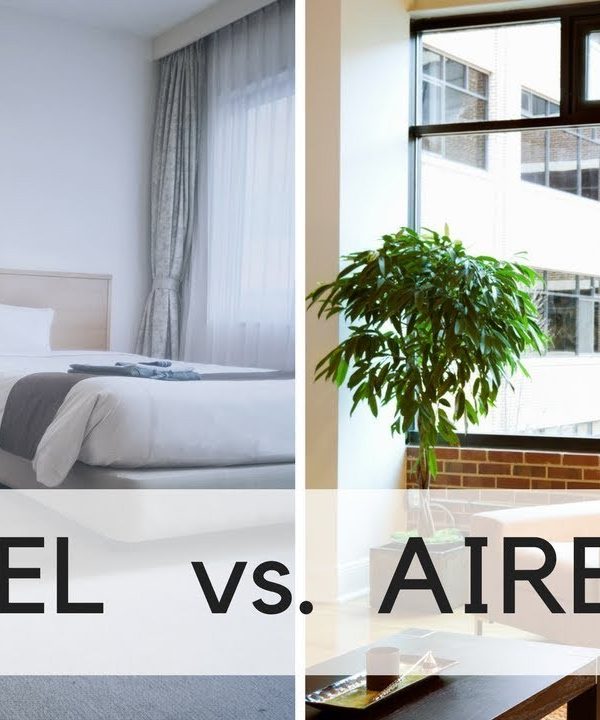The competition between Airbnb vs hotels intensifies as the travel industry evolves. Both options have their advantages and drawbacks, catering to different traveler preferences.
Airbnb has gained immense popularity due to its unique offerings and personalized experiences. Staying in an Airbnb allows travelers to immerse themselves in the local culture and feel like a part of the community. The various accommodations available, from cosy apartments to charming cottages, cater to different budgets and group sizes. Airbnb also provides the opportunity to interact with hosts who can offer insider tips and recommendations.
However, there are potential downsides to Airbnb. The lack of standardized regulations can result in inconsistent quality and reliability. Some rentals may not meet their advertised standards, leading to disappointments. Issues such as cleanliness, maintenance, and communication with hosts can sometimes arise, requiring proactive research and thorough vetting.
On the other hand, hotels offer a sense of familiarity and consistency. With established reputations and standardized services, hotels ensure a certain level of professionalism and convenience. Guests can enjoy amenities like room service, housekeeping, and on-site facilities such as restaurants, spas, and gyms. Hotels often have dedicated staff available 24/7 to address any concerns or requests promptly.
However, hotels sometimes lack the personal touch and local immersion that Airbnb provides. The standardized nature of hotels can make them feel impersonal and less authentic. Additionally, the cost of staying in a hotel can be higher, especially in popular tourist destinations.
Airbnb vs hotels
Airbnb

First, let’s consider the benefits of Airbnb concerning Airbnb vs Hotels. One of the primary reasons people choose Airbnb over hotels is the cost. Airbnb rentals are often less expensive than hotels, especially for extended stays. Furthermore, many Airbnb rentals include conveniences that hotels do not, such as complete kitchens and laundry facilities, which can be particularly attractive for families or business travelers. Airbnb also offers a more personal touch, as guests often stay in someone’s home and can get a unique and authentic experience of the local culture.
Here are some reasons why it is a strong competitor to hotels:
Customization:
Firstly, They offer a more personalized and unique travel experience. Unlike hotels, which often have a standard layout and design, Airbnb properties can be as diverse as the hosts who own them. Staying in an Airbnb property allows travelers to immerse themselves in the local culture and experience a destination more authentically.
Cost:
Secondly, It can be more cost-effective than hotels. Many Airbnb properties are priced lower than hotels, particularly in popular tourist destinations where prices can be exorbitant. Additionally, Airbnb properties often come with amenities such as a kitchen and laundry facilities, which can help travelers save money on dining out and laundry services.
Size:
Thirdly, it is more convenient for travelers, particularly those traveling with a group or children. Airbnb properties are often larger than hotel rooms and offer multiple bedrooms, bathrooms, and living spaces. This can give travelers more space to relax and enjoy their trip without feeling cramped or confined.
Safety:
Finally, they can provide travelers with excellent safety and security. The platform vets Airbnb hosts and must meet specific standards before they are allowed to list their property. Furthermore, Airbnb provides a safe payment system and 24/7 customer assistance, which can help tourists feel more confident in their booking and general trip experience.
Hotels

Now we come to the second option of Airbnb vs hotels; hotels offer reliability and consistency that Airbnb cannot match. Hotels are held to specific standards and regulations, which can provide peace of mind to guests. Additionally, hotels often have on-site amenities such as gyms, pools, and restaurants, which can be convenient for guests who don’t want to venture far from their lodging. Hotels also offer more consistent service, with dedicated staff to ensure guests have a comfortable and enjoyable stay. While Airbnb has disrupted the hospitality industry, hotels offer several advantages that many travelers still prefer.
Here are some reasons why hotels remain a strong competitor for Airbnb vs Hotels:
Consistency and Standards:
Hotels are known for providing consistency and adhering to specific standards. Many chain hotels have a set of guidelines and expectations that each location must follow, ensuring that guests have a similar experience regardless of where they stay. For travelers who value predictability and reliability, hotels are often the preferred option.
Professionalism:
Hotels employ trained professionals to provide guests with room cleaning, maintenance, and front desk support. This level of professionalism can provide peace of mind to guests who want to be assured that their stay will be well-managed.
On-site amenities:
Hotel facilities such as swimming pools, exercise centers, and eateries are frequently available to visitors. These on-site facilities can provide convenience and entertainment, particularly for visitors seeking a full holiday experience without leaving the hotel property.
Loyalty programs:
Many hotel chains offer loyalty programs that reward guests for their continued patronage. These rewards can include discounts, free nights, and room upgrades. This can provide additional value to guests who frequently travel and prefer to stay within a particular brand.
Security:
Hotels frequently implement security measures that provide guests with a sense of safety and security, such as keycard entry to rooms and on-site security employees. Travelers alone or inexperienced with the area may find this especially useful. Additionally, most of the time, you have the option of 24/7 reception, which can be helpful for any situation.
Customer service:
Hotels frequently have devoted staff members on hand around-the-clock to help patrons with any requirements or concerns. This degree of guest care can reassure visitors who might encounter unforeseen problems while visiting. Creating a more inclusive experience allows visitors to fully relax and disconnect from any possible responsibility. Additionally, services such as a call to the room, courtier, valet parking, and others are always available.
Conclusion
In conclusion, between Airbnb vs Hotels, Airbnb has undoubtedly revolutionized the hospitality industry by offering travellers a unique and personalized vacation experience. The ability to rent private accommodations with amenities like kitchens and washing facilities has provided many tourists with a sense of safety, convenience, and cost-effectiveness. The opportunity to stay in distinctive properties, from cosy apartments to charming villas, allows travellers to immerse themselves in the local culture and enjoy a more authentic experience.
However, it’s essential to acknowledge the potential downsides of Airbnb. The lack of standardized regulations and oversight can result in unexpected issues, such as cleanliness or maintenance problems. Travellers must exercise caution and conduct thorough research before booking an Airbnb to minimize the risk of unpleasant surprises.
On the other hand, hotels offer consistency, professionalism, and on-site facilities that many tourists value. The peace of mind of staying in a recognized hotel chain, amenities like room service, daily housekeeping, and access to restaurants and gyms can be appealing. Hotels often have established loyalty programs and dedicated customer service teams, ensuring high support and assistance during their stay.
Ultimately, choosing Airbnb vs hotels depends on individual preferences and goals. Some travelers prioritize the personal touch, local immersion, and affordability offered by Airbnb, while others prefer the reliability, convenience, and comprehensive services hotels provide. Travelers need to consider their specific needs, conduct thorough research, and weigh the pros and cons of each option before making a decision.
Regardless of choice, Airbnb vs hotels plays significant roles in the hospitality industry, catering to travellers’ diverse preferences and desires worldwide.

